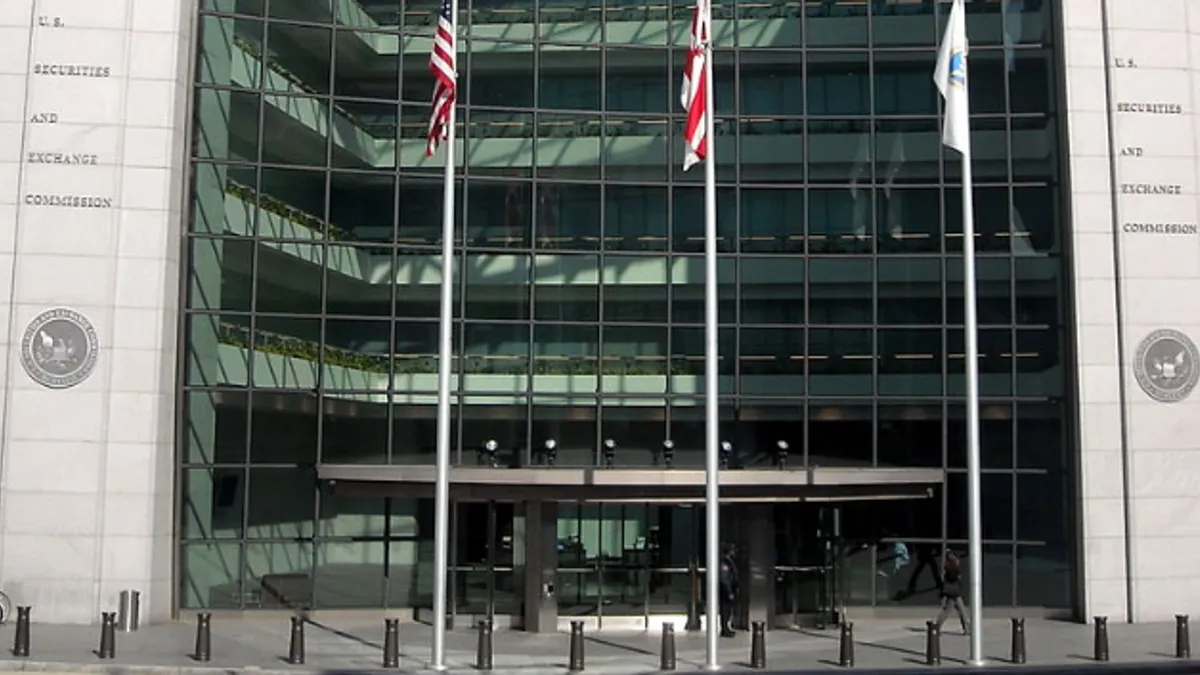Dive Brief:
- The Securities and Exchange Commission (SEC) has announced settled charges against Germany-based automaker BMW AG, and two of its U.S. subsidiaries, for disclosing misleading information about BMW’s retail sales volume in the U.S. while raising $18 billion from investors in bond offerings.
- From 2015 to 2019, BMW inflated its reported retail sales in the U.S., which helped the company close the gap between its actual retail sales volume and internal targets and publicly maintain a leading retail sales position relative to other premium automotive companies, the SEC said.
- According to the order, BMW of North America maintained a reserve of unreported retail vehicle sales — referred to internally as the "bank" — that it used to meet internal monthly sales targets without regard to when the underlying sales occurred.
Dive Insight:
In its order, the SEC said BMW NA paid dealers to inaccurately designate vehicles as demonstrators or loaners so that BMW would count them as having been sold to customers when they had not been. Additionally, BMW NA improperly adjusted its retail sales reporting calendar in 2015 and 2017 to meet internal sales targets or bank excess retail sales for future use.
As a result, the information BMW provided to investors in the bond offerings by the company's U.S. financing subsidiary, BMW US Capital, and to credit rating agencies, contained material misstatements and omissions regarding BMW’s U.S. retail vehicle sales.
"Companies accessing U.S. markets to raise capital have an obligation to provide accurate information to investors," SEC enforcement division director Stephanie Avakian said. "Through its repeated disclosure failures, BMW misled investors about its U.S. retail sales performance and customer demand for BMW vehicles in the U.S. market while raising capital in the U.S."
The SEC fined the company, its U.S. subsidiary and its U.S. financing subsidiary $18 million for violating antifraud provisions of the Securities Act of 1933.
The fine reflects the company's cooperation during the investigation, which the SEC called significant given the pandemic. "Travel restrictions, work-from-home orders, and office closures ... was taken into account in imposing a penalty," the SEC said.












